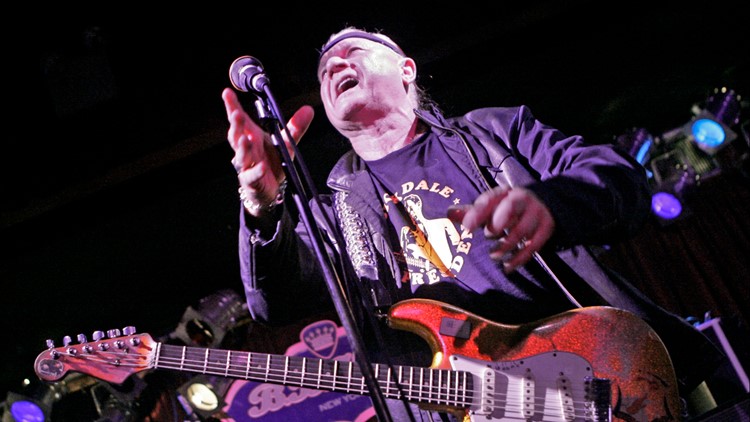Pioneering guitarist Dick Dale, known as the "King of the Surf Guitar," died Sunday at 81.
No cause of death has been revealed, but Dale suffered from multiple health issues over the years. The rocker had battled rectal cancer twice and was in renal failure, but refused to go on dialysis, he told the Pittsburgh City Paper in 2015.
Through the pain, Dale kept touring. He told the paper, "I can't stop touring because I will die. Physically and literally, I will die."
In a 2001 interview with the Los Angeles Times magazine, Dale reminisced about how he "once made a million dollars a year." He said. "I made $10,000 for three minutes' work on the 'Ed Sullivan Show' in 1963."
But in 1965, when he was only 28, Dale was diagnosed with rectal cancer, according to the Washington Post. He survived, but the cancer treatments drained his bank account of his wealth.
Even after the first diagnosis, Dale continued to battle cancer and up until his death, he explicitly said he continued to tour to fund his treatment. He told the Pittsburgh paper that he had to raise $3,000 every month to pay for medical supplies on top of the insurance he had to pay for.
He still had concerts scheduled through November 2019.
A 2018 study published in the Journal of the American Medical Asociation found that in 2016, the U.S. spent almost twice as much as 10 high-income countries on medical care. That year, the U.S. spent 17.8 percent of its GDP on health care. Per person, that's more than $9,000.
The study said the main reasons for the high cost of medical care in the U.S. are prices of supplies and drugs, along with administrative costs.
In short, in the U.S., drugs are more expensive, medical professionals get paid more and medical testing costs more.
The study also found little evidence that efforts to change the U.S. health care system have had a "meaningful influence on controlling health care spending and costs."
President Trump recently proposed a record $4.7 trillion budget for 2020, calling for big boosts to military and border wall spending while cutting health care and economic programs.
"A Budget for a Better America: Promises Kept. Taxpayers First" budget cuts $2 trillion from health care spending. It aims to collect $100 million in new fees from the electronic cigarette industry and provides money to fight opioid addictions. It also allocates $291 million to "defeat the HIV/AIDS epidemic."
What other people are reading right now:
►Make it easy to keep up-to-date with more stories like this. Download the 10News app now.
Have a news tip? Email desk@wtsp.com, or visit our Facebook page or Twitter feed.



